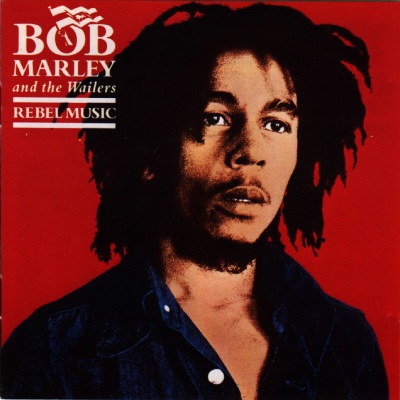
Rebel Music
1984年发行的《Legend》是Bob Marley最具代表性,也是发行量最高,在乐迷心中地位最高的一张精选辑,但只用一张专辑显然无法概括Bob Marley所有的经典,所以两年过后,Island公司又出版了另一张优秀的精选辑《Rebel Music》。 In assembling Bob Marley & the Wailers' British chart singles for the 1984 compilation Legend, Island Records created what turned out to be a perennial seller, but also an album that misrepresented the range of Marley's work, downplaying its political aspect in favor of danceability and romantic sentiments. Of course, what made Marley such a powerful figure internationally was his message about the uprising of the oppressed, but you wouldn't know that from Legend. Two years later, Island sought to redress the balance with its second major Marley compilation, Rebel Music. Here, in tracks drawn from such albums as Natty Dread, Rastaman Vibration, and Survival, Marley the political activist could be heard in all his glory, decrying "So Much Trouble in the World." In "War," presented in the medley with "No More Trouble" that had appeared originally on the 1978 concert album Babylon by Bus, he quoted Ethiopian ruler Haile Selassie about the dire consequences of denying rights to people of color. At the end, in a version taken from the 1975 "Live!" album, he implored his listeners to "Get Up, Stand Up." (Of course, he was not unaware that that exhortation also allowed them to dance in the aisles.) There were other political songs in Marley's repertoire, of course, and Rebel Music shared with Legend an unfortunate tendency to slight the Wailers' early albums, which contained plenty of appropriate material. (Only one track was drawn from Catch a Fire and none at all from Burnin'.) But for the millions who bought Legend, Rebel Music provided a necessary corrective revealing Marley's impassioned political stance. (Note that this compilation marked the first release on an album of "Roots," the non-LP B-side to the 1977 single "Waiting in Vain.")
